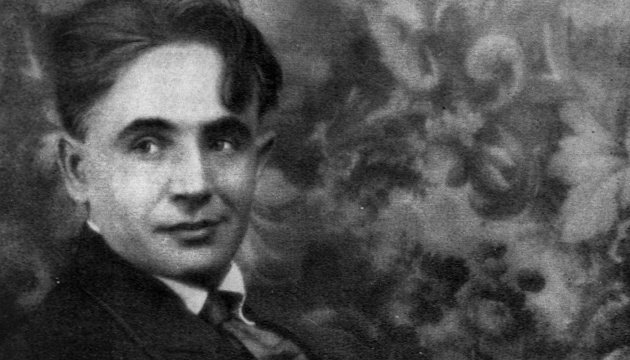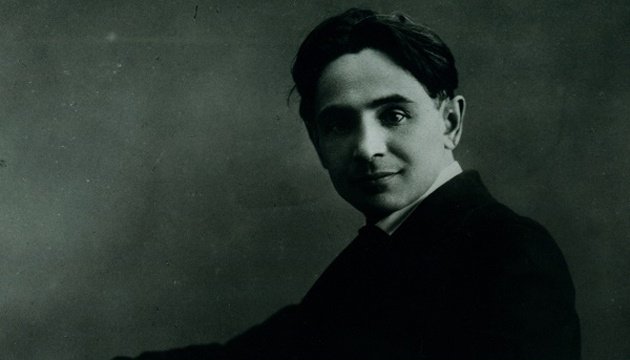Les (Oleksander) Kurbas was born a son of Ukrainian actors in 1887 in Sambir, Galicia, and died by execution on November 3, 1937 in Sandarmokh, prison. He studied philosophy and drama at the University of Vienna, and graduated from Lviv University in 1910. He worked as an actor in several provincial western Ukrainian theatre troupes, founded and directed the a theater in Ternopil, then worked in a theatre in Kyiv. After the February Revolution of 1917, Kurbas organized an actors' studio and founded the Molodyi Teatr in Kyiv, where he began to revolutionize Ukrainian theater, elevating it in style, esthetics, and repertoire from the provincial to the level of modern European theater. Influenced by Henri Bergson’s philosophy and the theatrical theories and experiments of Max Reinhardt, Georg Fuchs, and Edward Gordon Craig, Kurbas used Molodyi Teatr’s experimental productions to develop his own style of intellectual theater to replace the traditional Ukrainian ethnographic repertoire and traditional, realist psychological theater in general. He went on to found the Berezil in Kyiv (1922–26) and later Kharkiv (1926–33). It was here that his creative genius became most evident and transformed Berezil into the focal theater in Ukraine. At its height the Berezil employed nearly four hundred actors and staff members and ran six actors' studios, a directors' lab, a design studio, a theater museum, and ten specialized committees. There Kurbas perfected his rigorous system for the intellectual and technical training of actors. … The main stylistic principle of Berezil's productions was the synthesis of speech, movement, gestures, music, light, and decorative art into one rhythm or simple, dramatic language. Utilizing various elements of expressionism, constructivism, and other avant-garde styles, Kurbas’s innovative productions challenged the traditional principles of realist psychological theater and often anticipated the later experiments of such directors as Bertolt Brecht and Antonin Artaud. Of particular importance for the development of Ukrainian drama and theater was Kurbas’s collaboration with the most important Ukrainian playwright of the 1920s, Mykola Kulish, three of whose plays became part of Berezil’s repertoire. Kurbas left his mark in the history of Ukrainian theater as an innovative organizer and teacher and daring experimental director…he introduced a modern European repertoire and style of acting…broke down the old forms of Ukrainian theater and, after a long period of searching and enthusiastic experimentation with German expressionist theater and the theories of constructivism, succeeded, in his productions of Kulish's plays, in creating a unique, Ukrainian expressionist theater….Kurbas broke completely with traditional Ukrainian realist, ethnographic theater to present spectacles that forced the audience to become active participants rather than passive observers. He combined his intellectualism and philosophical interpretation of plays with a brilliant synthesis of rhythm, movement, and avant-garde theatrical and visual devices, including the use of film, and managed to gather together the best actors, directors, set designers, and playwrights in Ukraine.
(Source: Encyclopedia of Ukraine)



